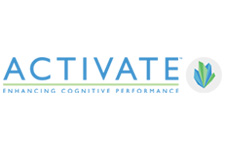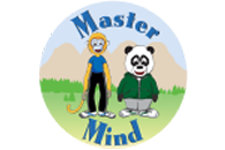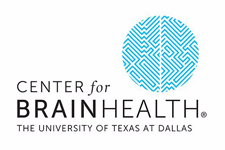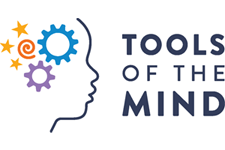EVIDENCE-BASED EXECUTIVE FUNCTION PROGRAMS FOR THE CLASSROOM
Educators want to help their students succeed. Yet, most teachers and administrators have to address the pressing and immediate needs of large class sizes and curricular requirements with limited resources and time. This leaves little opportunity for researching and identifying best-in-class, evidence-based interventions that are accessible, affordable, and effective. That is where BrainFutures comes in.
We view the implementation of scientifically and technologically sound brain fitness interventions as the missing link in today’s education system and a critical component for successfully addressing the many challenges students face. To support educators in identifying the right program(s) for their schools and classrooms, in writing our Brain Fitness and Executive Function: Evidence-Based Interventions that Improve Student Outcomes report , we reviewed more than 40 executive function (EF) programs. Of these, 10 met the rigorous criteria threshold established by our advisory group. For each of these 10 programs, detailed summary narratives follow and include: important program features, an overview of the key scientific studies conducted on the program, as well as how to find more information.

ACTIVATE™
The ACTIVATE™ program was developed by Professor Bruce Wexler, MD in research at Yale University and is distributed by C8 Sciences. It integrates computer-presented cognitive training exercises and specially designed physical exercises (that have built-in cognitive demands) to improve executive function—together developing attention, working memory, self-regulation, cognitive flexibility, pattern recognition, use of categories, and processing speed in K–8-grade students. Learn more

COGMED WORKING MEMORY TRAINING®
Cogmed Working Memory Training® provides computer-based training for all school-aged children (grades 1-12), as well as separate programs for preschoolers and adults. Designed by neuroscientist Dr. Torkel Klingberg, the program improves students’ working memory capacity. Cogmed is offered by Pearson, an 80-year-old clinical assessment organization that provides programs and assessments for psychologists, speech language pathologists, occupational therapists, schools, and clinical settings. Learn more

FAST FORWORD®
Fast ForWord® is an oral language and reading intervention program offered by Scientific Learning, a company dedicated to developing products that improve cognitive, language, and reading skills. It was developed by four scientists from the fields of neuroscience and education–Drs. Michael Merzenich, Paula Tallal, William Jenkins, and Steven Miller. The program addresses memory, attention, processing speed, and sequencing skills Fast ForWord® can be used as a Pre-K–12 intervention. Learn more

INNER EXPLORER™
Inner Explorer ™ offers audio-guided mindfulness programming that helps K–12 students, their teachers, and families experience less stress, greater focus, and improved self-regulation. As a result, behavior issues are reduced and academic performance is increased. The program was developed by education and mindfulness researchers Dr. Laura Bakosh, and Janice Houlihan, M.Ed. The program is designed to promote compassion, gratitude and self-regulation, and improve focus. It has specific training and tools to involve parents and families. Learn more

MASTER MIND
Master Mind is a mindfulness education prevention program designed to enhance the coping strategies and decision-making skills of elementary school students (grades 4-5) to prevent substance abuse. It is a product of innovation Research & Training (iRT), a company committed to bridging research, intervention, and prevention to address real-world challenges. The program was developed with the support of grants from the National Institute of Drug Abuse and the National Institute of Alcohol Abuse and Alcoholism. The program was co-developed by clinical child psychologist Dr. Janis Kupersmidt, and Dr. Alison Parker. Learn more

MINDFULNESS IN SCHOOLS PROJECT
Mindfulness in Schools Project (MiSP) is a program that trains 2nd-8th-grade teachers in how to implement effective mindfulness curriculums into their classrooms. MiSP programs help students manage anxieties and stressors associated with classroom learning, develop a greater emotional intelligence, promote prosocial habits, and increase attention and self-regulation toward improved concentration. The nonprofit was founded in the UK in 2009 by schoolteachers and mindfulness practitioners Richard Burnett and Chris Cullen as a solution to the lack of classroom-based mindfulness programs. MiSP also offers training for parents. Learn more

MINDUP
Founded in 2003 by actress Goldie Hawn’s educational foundation and a team of neuroscientists, educators, and psychologists, MindUP is a classroom program that provides a curriculum at the intersection of neuroscience, positive psychology, mindful awareness, and SEL. The aim of MindUP is to help students focus their attention, improve self-regulation skills, build resilience to stress, and develop a positive mindset in school and in life. The MindUP curriculum is published by Scholastic Inc., and is offered in three grade levels—Pre-K–2, grades 3-5, and grades 6-8. Learn more

PATH TO READING
PATH to Reading is a patented computer game designed to improve reading, attention, and memory by training specific parts of the brain that support these functions. PATH stands for Perception Attention Therapy and was created by neurobiologist Dr. Teri Lawton. PATH’s visual training which includes practicing left-right eye movements and identifying patterns on backgrounds, strengthens the eye-brain connection and the function of the visual pathways, improving reading skills and comprehension. The product is available for students in grades K-12. Learn more

SMART
SMART (Strategic Memory Advanced Reasoning Training) is a program developed by researchers from the Adolescent Reasoning Initiative, a division of the Center for Brain Health, University of Texas at Dallas. The program is based on the premise that by improving complex reasoning and innovative thinking, students will expand their cognitive capacity during middle school years and on into college. This program is for grades 6–12, and trains teachers to implement a set of content-focused cognitive strategies that empower students to take control of their higher-order learning performance, in turn elevating students’ confidence, learning ability, and academic outcomes. Learn more

TOOLS OF THE MIND
Tools of the Mind (Tools) offers a comprehensive curriculum and teacher training program for Pre-K and K classrooms that targets the development of students’ fundamental learning skills, both cognitive and affective. The curriculum dates back to 1993, when Dr. Elena Bodrova and Dr. Deborah Leong began working with early childhood classrooms to improve children’s learning and support teachers with new techniques for teaching young children. Tools is a science-informed, research-based developmental approach that includes the development of play and social-emotional skills, as well as underlying cognitive and academic skills. Learn more